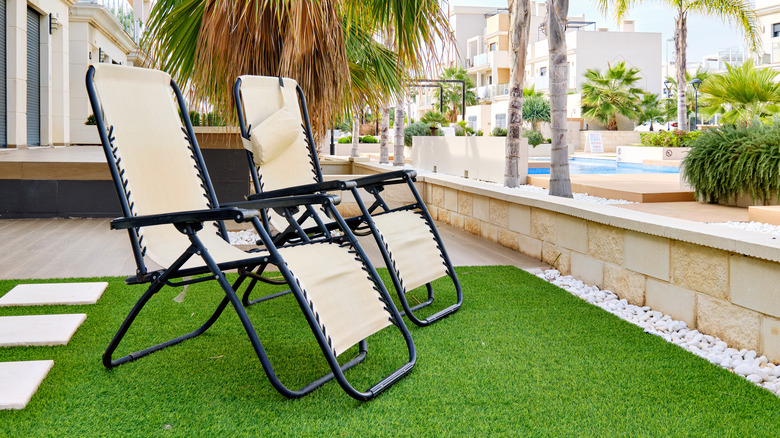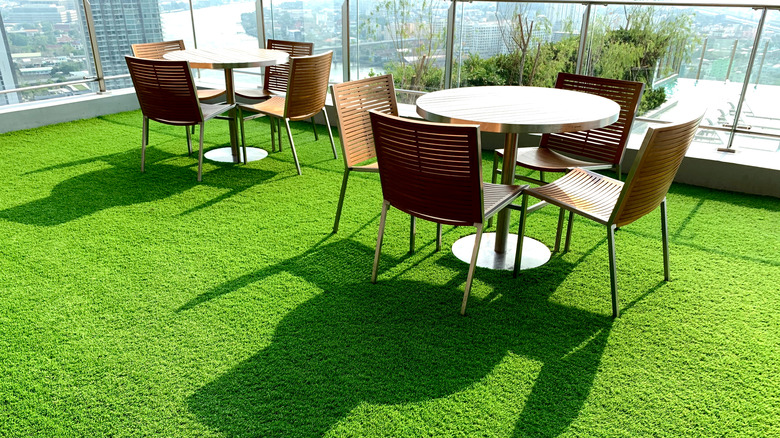The Surprising Reason Artificial Lawn Might Not Be The Best Choice After All
Balcony owners and rooftop sunbathers know the kitschy appeal of artificial grass, but there are some cons to artificial lawns that aren't obvious at first glance. You might be better off planting easy-to-grow plants or investing in outdoor rugs instead of trying to add some artificial landscaping to your outdoor space.
It might be tempting to roll out artificial turf onto your concrete patio, especially when you're not surrounded by a lot of green. After all, an artificial lawn adds a lot of atmosphere. Not only does it provide some green for your urban nook, but it also has a retro feel that evokes images of grandparents' front steps, 1950s luaus, and patios decorated with wicker furniture. Just add some plastic lawn flamingoes to create a totally retro vibe.
Although it's charmingly vintage, an artificial lawn might not be the best choice for your outdoor space if you're eco-conscious. It might simulate grass, but that doesn't make it equivalent to nature. In fact, it might contribute to harming the environment. Keep reading for the cons of installing artificial grass.
Eco-conscious considerations of artificial lawns
At first glance, an artificial lawn doesn't seem like a controversial purchase. But, for homeowners and renters trying to become more eco-friendly, buying an artificial lawn will go against their objectives.
One of the perceived perks of having artificial grass is that it conserves water since it doesn't need to be watered like real grass. But that's not entirely true. The plastic often becomes too hot to step on during peak summer months, causing owners to water the turf regularly to keep it cool. In fact, artificial turf can become up to 10 to 15 degrees hotter than the current temperature outside, per NBC News.
In addition to using unexpected water resources, artificial turf might also contribute to microplastic pollution. The turf's plastic will wear down with use, and those particles will leach into the ground, directly impacting the surrounding environment, according to Water — Use It Wisely.
So, if an artificial lawn is on your home wish list, you might want to reconsider.

